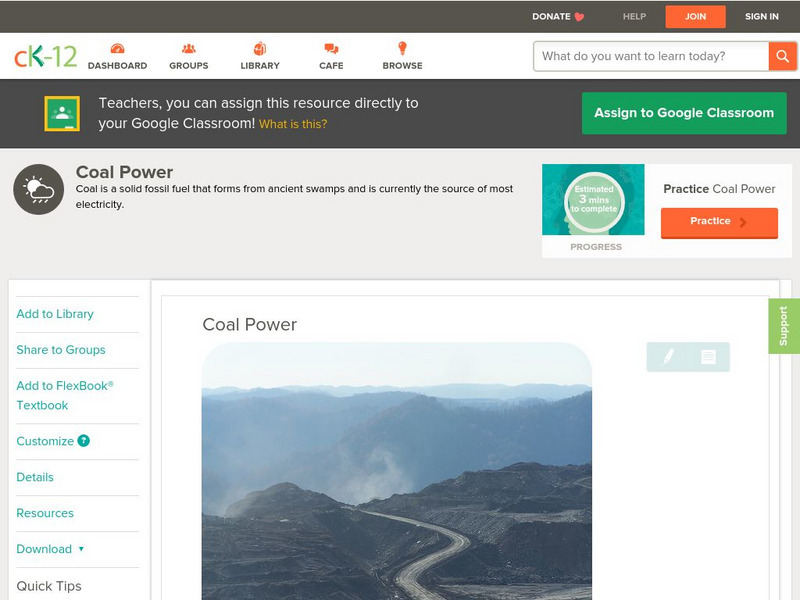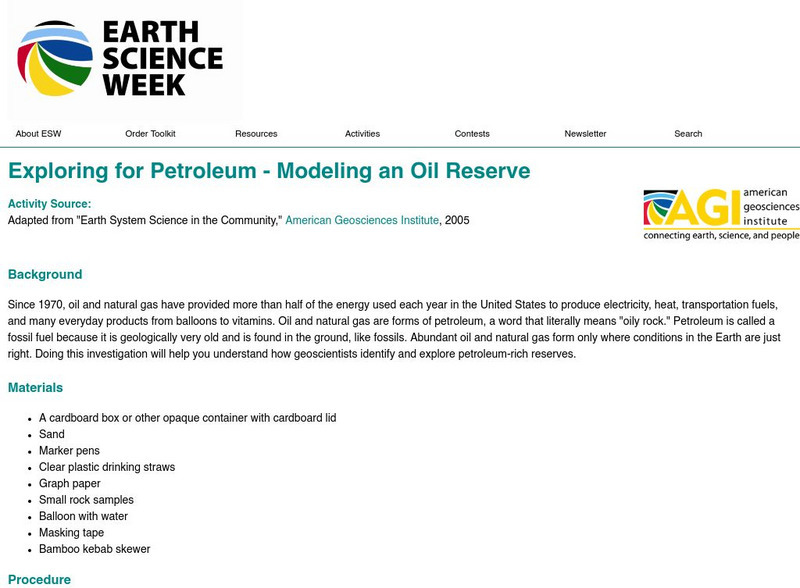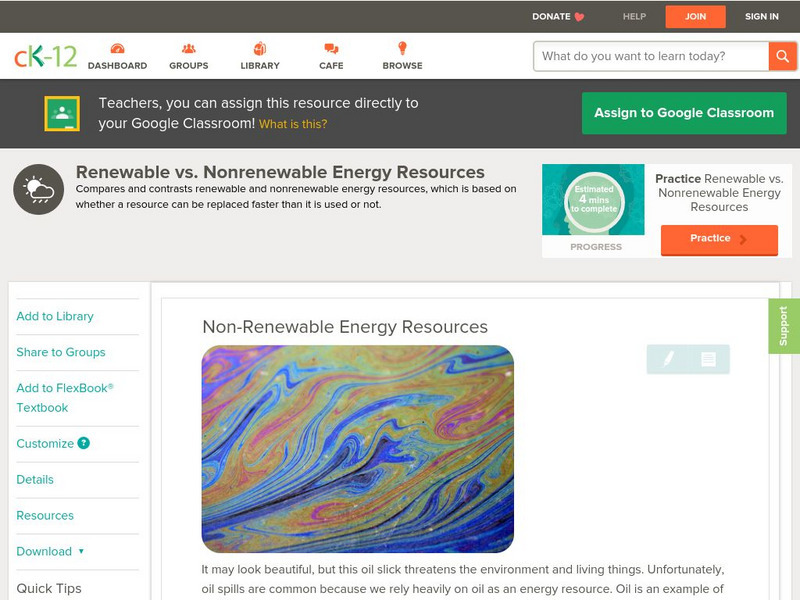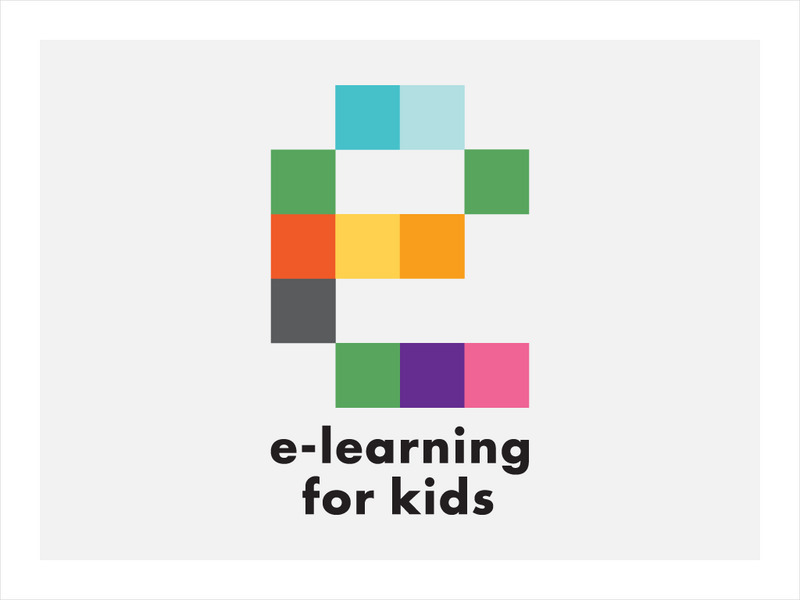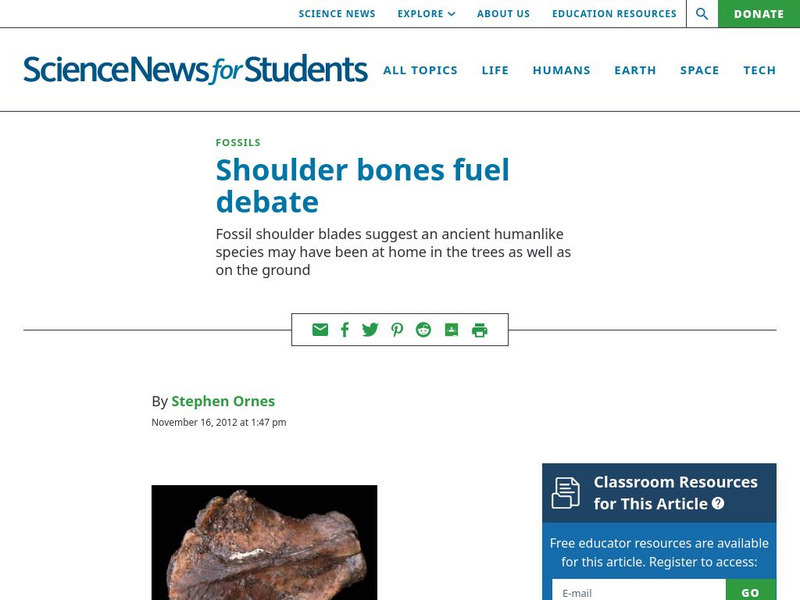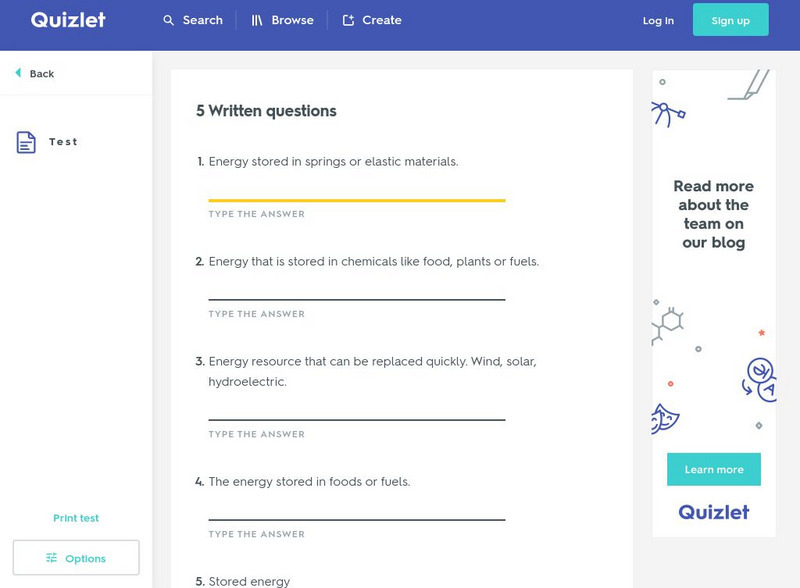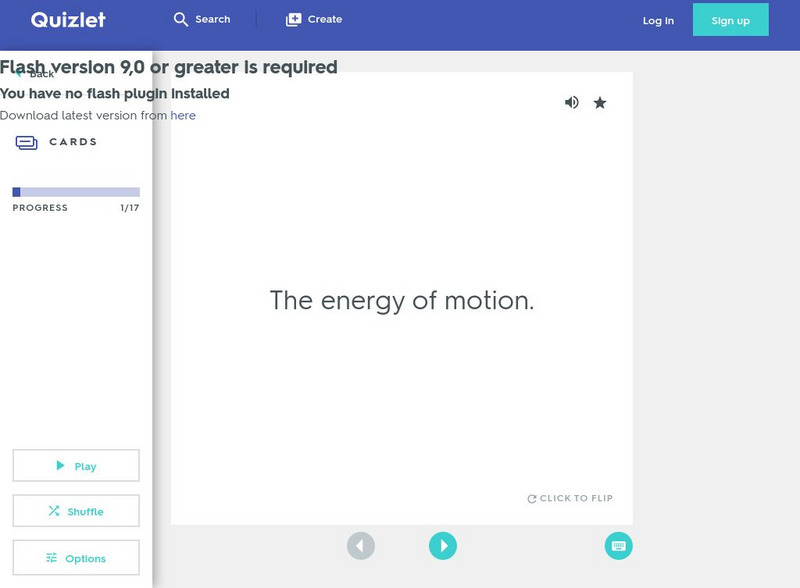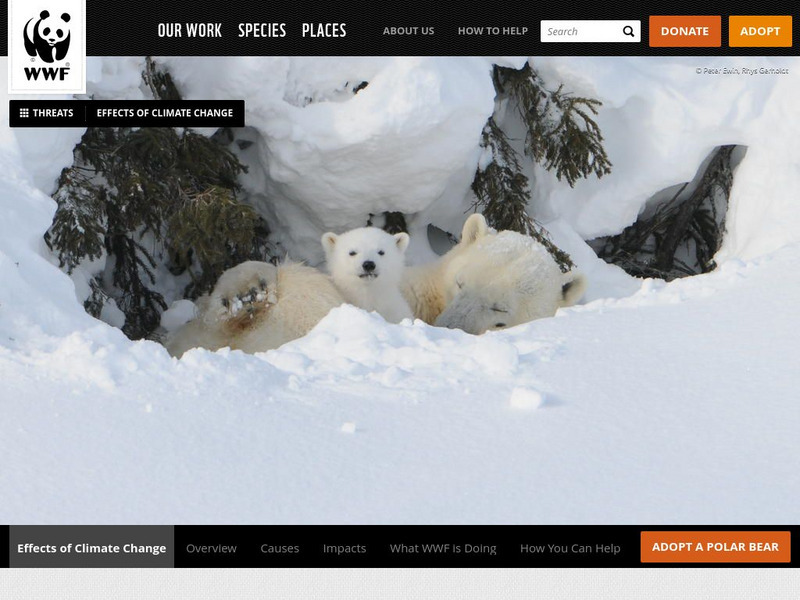Hi, what do you want to do?
CK-12 Foundation
Ck 12: Earth Science: Coal Power
[Free Registration/Login may be required to access all resource tools.] Overview of coal's creation, usage, and effects.
CK-12 Foundation
Ck 12: Life Science: Nonrenewable Resources
[Free Registration/Login may be required to access all resource tools.] A nonrenewable resource is a natural resource that is consumed or used up faster than it can be made by nature. Two main types of nonrenewable resources are fossil...
American Geosciences Institute
American Geosciences Institute: Earth Science Week: Exploring for Petroleum Modeling an Oil Reserve
Experience the process of searching and drilling for oil in this hands-on activity.
CK-12 Foundation
Ck 12: Earth Science: Non Renewable Energy Resources
[Free Registration/Login may be required to access all resource tools.] What nonrenewable energy resources and fossil fuels are and how they form, and the drawbacks of using nonrenewable energy resources.
Other
Moorland School: Earth Science Zone: Fossils Into Fuels
Learn that fossilized remains of dead plants and animals can form fossil fuels that are used to power to your car! Website describes the properties of crude oil, natural gas, and hydrocarbons.
TeachEngineering
Teach Engineering: Engineering for the Earth
Young students are introduced to the complex systems of the Earth through numerous lessons on its natural resources, processes, weather, climate and landforms. Key earth science topics include rocks, soils and minerals, water and natural...
Science Museum, London
Science Museum: Climate Science Info Zone
Media-rich interactive explores Earth's climate, investigating what might be causing the climate to change and how to prepare for it in the future.
Society for Science and the Public
Science News for Students: Carbon Dioxide Levels Rise Fast and High
The buildup of carbon dioxide in the atmosphere is rising faster than at any time since dinosaurs roamed the Earth. The burning of fossil fuels is largely to blame.
Scholastic
Scholastic: Study Jams! Science: Energy, Light and Sound: Renewable Fuels
A slideshow and a short quiz on the different types of renewable energy sources.
CK-12 Foundation
Ck 12: Fourth Grade Science: Physical Science: Energy Resources
[Free Registration/Login may be required to access all resource tools.] Discusses nonrenewable and renewable energy resources. Outlines world energy use and ways to conserve energy.
E-learning for Kids
E Learning for Kids: Science: Denmark: What Are Natural Resources and Why Are They Important?
Learn about natural resources, both renewable and nonrenewable, and the impact humans have on the natural world.
CK-12 Foundation
Ck 12: Life Science: 12.30 Nonrenewable Resources
Learn about nonrenewable resources and energy, specifically nuclear power.
CK-12 Foundation
Ck 12: Life Science: 12.22 Carbon Cycle
Understand the role that the carbon cycle plays in the ecosystem.
Other
Florida Dept. Of Education: Conservation of Renewable and Nonrenewable Resources
In this learning module, students learn to differentiate between renewable and nonrenewable resources, and identify resources that fit into each category. It explains the environmental effects of using nonrenewable resources, such as...
American Geosciences Institute
American Geosciences Institute: Earth Science Week: Chemistry of Burning
In this activity, students use pipe cleaners and foam balls to build a model of a hydrocarbon molecule. They then modify it to demonstrate the chemical reaction that happens when the hydrocarbon is burned.
Society for Science and the Public
Science News for Students: Shoulder Bones Fuel Debate
A shoulder blade was recently discovered that belonged to a 3-year-old humanlike female who lived more than 3 million years ago. Scientists are studying the fossil to learn whether the creature climbed trees.
Scholastic
Scholastic: Study Jams! Science: Energy, Light and Sound: Natural Resources
A slideshow and a short quiz on natural resources, the difference between renewable and nonrenewable resources, and the impact humans have on the Earth's natural resources.
CK-12 Foundation
Ck 12: Life Science: 12.24 Air Pollution
Learn about some sources of outdoor air pollution.
Quizlet
Quizlet: 6th Grade Science: Energy Vocabulary: Test
This interactive assessment features 6 matching, 6 multiple-choice, and 5 true/false question over 17 terms related to energy and their definitions. These include the following: Kinetic, Sound, Potential, Elastic potential, Chemical,...
Quizlet
Quizlet: 6th Grade Science: Energy Vocabulary: Match
In this interactive game, students match 17 terms related to energy with their definitions. These include the following: Kinetic, Sound, Potential, Elastic potential, Chemical, Gravitational Potential, Electrical, Light, Energy, Energy...
Quizlet
Quizlet: 6th Grade Science: Energy Vocabulary: Flashcards
This set of interactive flashcards focuses on 17 terms related to energy and their definitions. These include the following types of energy: Kinetic, Sound, Potential, Elastic potential, Chemical, Gravitational Potential, Electrical,...
Other
Lehigh University: Energy
An inquiry-based science unit for middle school students centered on the world's energy sources. The lessons integrate technology and lab activities while teaching about energy sources, production, and consumption.
Other
World Wildlife Fund: Climate Change
The World Wildlife Fund offers a comprehensive overview of climate change, also known as "Global warming." Content includes basic information about the process and its effect on the environment, the science to back it up, conservation...





